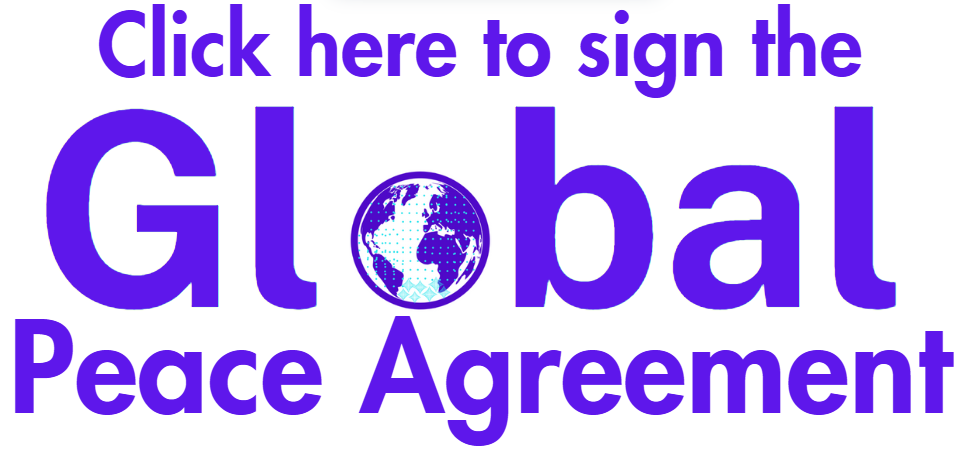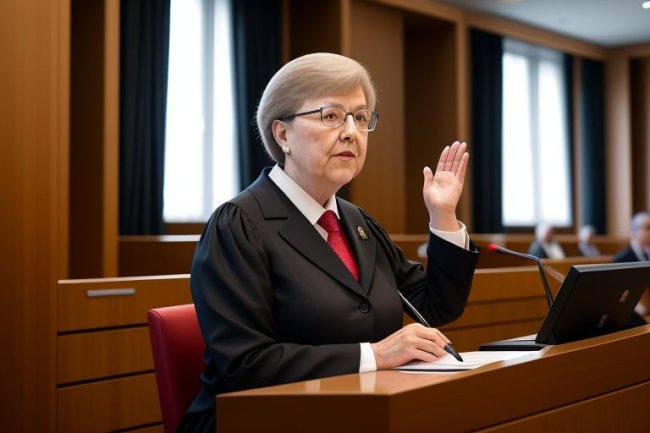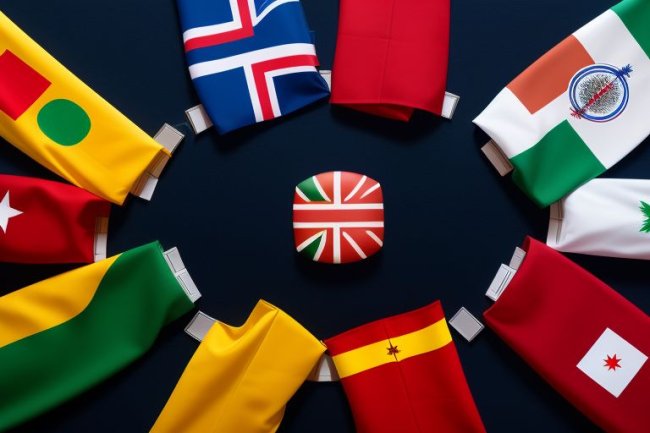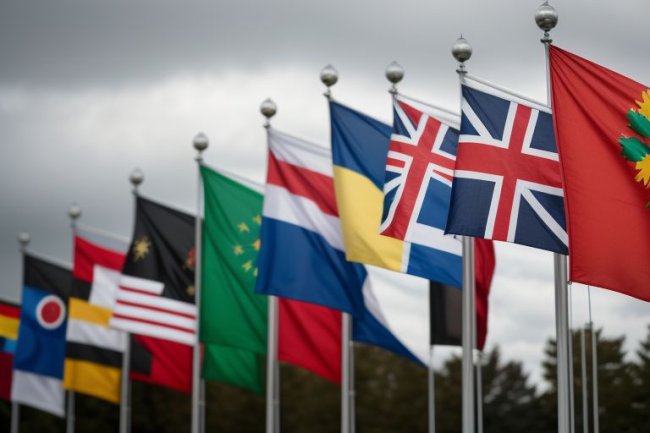ENSURING JUSTICE AND ACCOUNTABILITY
The threads of justice and accountability are remarkably resiliently braided. These two pillars are the cornerstones of moral governance and effective tools for maintaining international equality. Establishing strong justice and a firm commitment to accountability are essential steps toward a world where nations live in peace, harmony, and shared prosperity.


Justice is the bedrock upon which societies are built, fostering an environment where fairness, equity, and the rule of law flourish. Its significance transcends borders, extending its influence on international relations. When justice is upheld, nations are empowered to operate equitably, irrespective of their size, economic strength, or political clout. It ensures that each nation's rights are acknowledged and protected, safeguarding the very essence of equality.
Accompanying justice, accountability is a powerful compass, guiding nations towards responsible governance and transparency. It's a beacon that demands leaders and institutions to answer for their actions, policies, and decisions. In international relations, accountability compels nations to uphold their commitments, respect agreements, and adhere to the principles that underpin global stability. When nations are held accountable, the path toward equality is illuminated by a sense of trust and cooperation.
The convergence of justice and accountability on the global stage forms an intricate dance that can bolster the foundation of equality among nations. Their symbiotic relationship resonates with pursuing a world where diplomatic interactions are characterized by integrity, treaties are upheld without prejudice, and the shared goal of peaceful coexistence is fortified. As we delve deeper into justice and accountability, we uncover how these twin pillars can shape a future of harmonious international relations and sustainable equality among nations.
Upholding Accountability in International Relations
In the quest for more legitimacy, the call for greater accountability resounds like a light of transformation. The interaction between accountability and legitimacy has become crucial as globalization increases global connectivity and transnational entities become increasingly prominent. This intertwining of accountability and legitimacy with the overarching idea of nation-to-nation equality paints a vivid picture of how sustaining accountability can support a peaceful international environment where each nation's rights are upheld, and nation-to-nation equality thrives.
The nexus between accountability and legitimacy is a dynamic landscape, contours shaped by global governance's evolving nature. While numerous transnational actors wield substantial power and influence, the question of their legitimacy often lingers, rooted in their lack of democratic accountability. This paradox of accountability versus legitimacy presents a formidable challenge at the heart of contemporary international relations.
However, a groundbreaking shift is underway—a transformation that redefines the boundaries of accountability and charts a course toward greater legitimacy for transnational actors and international relations. Recent innovations in theoretical and practical frameworks illuminate the path where accountability, particularly when aligned with democratic standards, emerges as the linchpin for legitimizing transnational actors. This metamorphosis does not necessitate the wholesale replication of democratic mechanisms across the globe but rather harnesses the principles of accountability to breathe life into the notion of Equality of Nations.
At its core, the demand for accountability in international relations resonates as a call for authenticity—a clarion call for transnational actors to stand before the mirror of accountability and reflect their actions and decisions through the prism of democratic values. The intertwining of accountability and legitimacy is not a mere intellectual exercise; it is an inherent aspiration for a world where power is accompanied by responsibility and nations' interests, regardless of their size or stature, are safeguarded.
Accountability presents a mosaic of complexities and nuances when superimposed onto the tapestry of international relations. The pillars of accountability stand as sentinels, guardians of integrity, and guarantors of ethical conduct in a realm often fraught with power dynamics and diplomatic intricacies. This embodiment of accountability extends beyond mere transparency; it is an invitation to embrace ethical comportment, principled actions, and an unwavering commitment to honouring obligations, treaties, and agreements.
As the global stage expands to accommodate an array of actors, from nation-states to non-governmental organizations, multinational corporations, and international institutions, the call for accountability reverberates with a renewed urgency. Accountability is not confined to hierarchical relationships between states; it transcends borders and genres, permeating every interaction, negotiation, and engagement that shapes the contours of international relations.
In parallel, the march toward legitimacy takes centre stage and charts a course toward acceptance, trust, and recognition. Legitimacy is not granted through mere assertion; it is earned through a nexus of credibility, respect, and adherence to democratic values. The convergence of accountability and legitimacy in international relations is a harmonious duet, each note resonating with the aspiration for an equitable global order where nations, regardless of their economic, political, or social stature, stand on equal ground.
Within this nexus of accountability and legitimacy, the seeds of equality among nations find fertile ground. The essence of international relations—dialogue, cooperation, diplomacy—attains a new dimension when anchored in democratic values and principles of accountability. In this landscape, regardless of size or geopolitical influence, every nation can voice its concerns, contribute its perspectives, and shape humanity's collective destiny.
The marriage of accountability and legitimacy generates transformation across international relations. It transcends the boundaries of rhetoric and calls for concrete action—a recalibration of policies, practices, and governance structures to align with democratic standards. The confluence of accountability and legitimacy is not a mirage but a tangible vision of a world where nations collaborate not out of obligation but out of a shared commitment to upholding the ideals of democracy, fairness, and justice.
In this pursuit, it is essential to recognize that accountability is not a one-size-fits-all concept. The nuances of cultural contexts, historical trajectories, and governance systems all play a role in shaping the manifestation of accountability. Therefore, while the overarching principles of democratic accountability may serve as guiding stars, the pathways to achieving them must be diverse, accommodating the unique attributes of each nation.
Within this paradigm, accountability transcends being a checkmark on a list; it becomes a catalyst for nurturing trust, forging partnerships, and a new narrative of international relations—one rooted in equality and respect. The amplification of accountability doesn't fragment the global landscape; rather, it unites nations in a shared commitment to integrity, transparency, and collective well-being.
The fusion of accountability and legitimacy holds the potential to reshape the contours of international relations, carving a path toward equality among nations. This transformative journey doesn't demand the uniform replication of democratic systems worldwide; rather, it beckons the adoption of democratic values and principles of accountability as the bedrock of global interactions. As transnational actors, whether states, corporations, or organizations, embrace accountability, they sow the seeds of legitimacy and cultivate an environment where the Equality of Nations thrives. The world is on the cusp of a new era in this harmony of accountability and legitimacy. In this realm, the rights of every nation are upheld, where ethical compasses guide diplomatic interactions, and where the spirit of collaboration rests on democratic foundations.




















